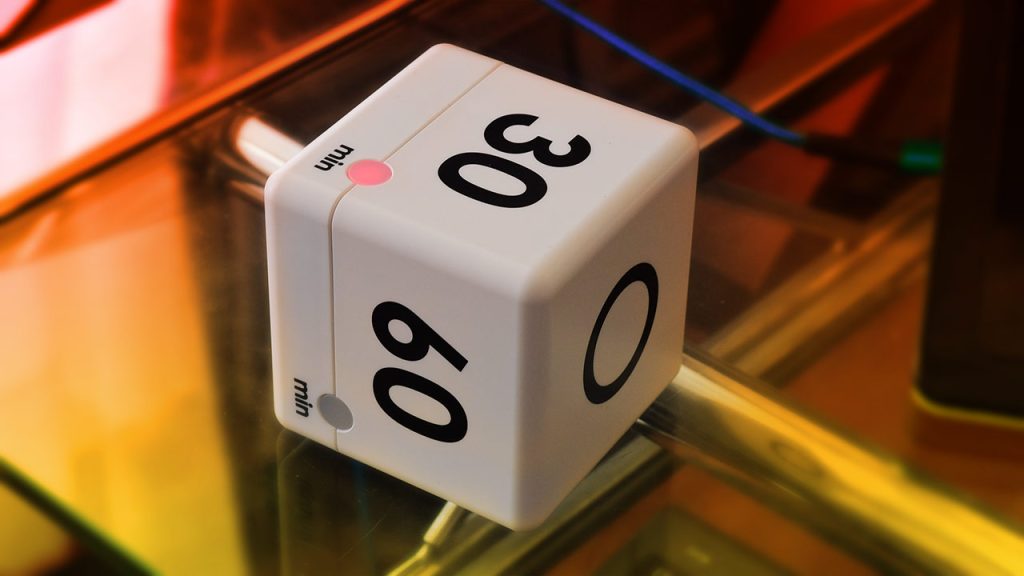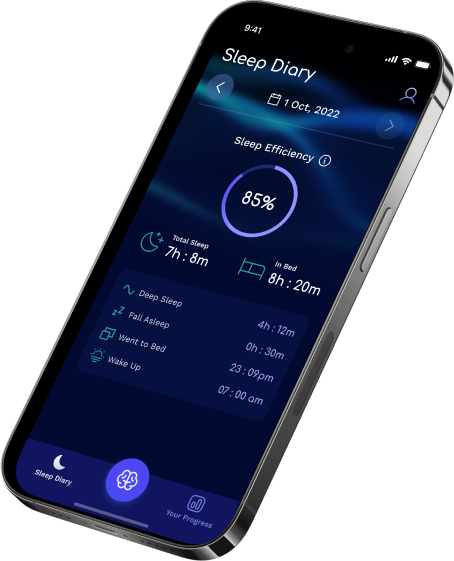
School has been identified as a leading cause of sleep deprivation in young students around the world. For instance, studies have demonstrated certain facts.
- About 18.5% of university students suffer from insomniax, with some schools estimated to reach as high as 40%.
- The sleep deprivation among Haramaya University students was 68.4%x
- The sleep deprivation among Brown University students was 73%x
- Over half of the Lebanese university students reported having poor sleepx
Let’s take a closer look at this issue.
🔎 Feel free to jump to your preferred section in this article:
1. Causes
2. Consequences
3. Solutions
1. The Underlying Causes
There are several factors that might be causing or contributing to your lack of sleep as a student.
1.1 Academic Pressures
Your pursuit of academic success may lead you to sleep less to find more time to dedicate to your studies.
1.2 Socialization
Socialization is a part of many students’ lives, and this can lead them to stay up late. While social interactions can be very positive for mental health and personal development, they can come with the cost of getting less sleep.
1.3 Poor Sleep Hygiene
A lifestyle that isn’t conducive to sleep can lead to reduced sleep duration and quality. For you, as a young person, one of the most significant contributors in this area is probably technology and digital media consumption, right?
1.4 Stress and Poor Mental Health
Your academic life, personal issues, the weight of expectations, the uncertainty of the future, social isolation and more can lead to stress, anxiety, and depression, known causes of insomnia.
These four reasons are, I would say, the main ones contributing to the sleep issues affecting students.
2. Consequences
Suffering from sleep deprivation can have multiple negative effects on a person in general, but some of those can affect you as a student in particular.
2.1. Reduced Cognitive Functions
The most immediate effect of sleep deprivation is the decline of your cognitive functions, which can manifest in multiple ways:
2.1.1 Reduced Attention and Focus
Reduced attention might make you more absent-minded and cause you to miss out on critical key details in class, leading to misunderstandings or gaps in your knowledge.
Reduced focus can prevent you from concentrating on a task for long. This task can be studying or even trying to solve a problem in an exam.
2.1.2 Reduced Decision-Making
With reduced decision-making skills, you might struggle to make clear and effective choices. This can be a problem when working on group projects, for instance, where you might struggle to find the best approach to collectively solve a problem, or allocate tasks to others effectively.
2.1.4 Reduced Memory
Suffering from sleep-induced brain fog and memory loss can make you forget essential details when it matters the most, like during an exam.
2.1.5 Reduced Learning
Your ability to learn new information or skills is also diminished during sleep deprivation. It’s important to remember this since this is arguably the main reason why you’re attending school in the first place.
2.1.6 Poor Communication
Sleep deprivation can affect your communication skills, making you less effective in group discussions or presentations. Imagine struggling to present your ideas clearly and coherently during a presentation due to brain fog. Not a great look.
2.1.7 Emotional Instability
Lack of sleep can lead to lower emotional stability, which results in:
- Lower capacity to cope with stress
- Unregulated emotions
- Neuroticism and negative thinking will increase due to the impairment of the prefrontal cortexx
- Information is more influenced by emotions, rather than by objective facts. This is the result of an unregulated amygdalax
Emotional instability can lead to the three insomnia-causing mental health issues I’ve mentioned — stress, anxiety, and depression.
2.1.8 Poor Interpersonal Relationships
If you haven’t been getting much sleep, you might see a decline in your social skills (e.g. failing to recognize and respond to social cues). As a result, this can lead you to conflicts with others, misunderstandings, and, in the most extreme cases, even social isolation.
2.2 Loss of Motivation
Based on the available data, we can say that when you get quality sleep, you will likely be more motivated and engaged in your studies and extracurricular activities.
2.3 Absenteeism and Delay to School
Sleep deprivation can make you more prone to arrive late at classes, or simply not show up at all.
2.4 Performance Deterioration
As you can expect, if you’re sleep-deprived, unmotivated, and cognitively impaired, you won’t be in your top form to get the type of academic results that matter. Therefore, you can expect to have:
- Decreased quality of assignments.
- Lower scores on exams.
3. Solutions
Now that we’ve gone over the causes and consequences, let’s focus on what strategies you can use to solve sleep deprivation.
You might have heard the joke that as a student, you can only pick two out of the three following options: good grades, social life, or sleep.

Is it true? Yeah, kind of. There’s a limited amount of time in a day, so you need to set your priorities and make choices. If you focus on one thing, another will suffer.
But can something be done to improve this situation? Also yes.
The main idea is to become more efficient:
- Becoming more efficient at studying.
- Becoming more efficient at socializing.
- Becoming more efficient at sleeping.
Once you achieve this efficiency, it is possible to do more with less. Consequently, you’ll find some extra available time, which can then be rightfully put into one of the other pyramid activities. Let’s go over some tips on how to do this:
3.1 Improving Study Efficiency
There are some proven techniques known to improve productivity and time efficiency.
Here are some techniques tailored for students:
3.1.1 Pomodoro Technique
- Try studying for 30 minutes (a Pomodoro), then taking a 5-minute break.
- After completing four Pomodoros, take a longer break of about 15 minutes.
- This method often results in better concentration and productivity.
- For example, you can break down a chapter into 30-minute study intervals to improve retention and understanding.
- I personally recommend this technique. I even bought a physical Pomodoro timer, because it feels much more practical and immediate than a digital alternative.

3.1.2 The Eisenhower Box
- Try categorizing your study tasks into four quadrants: Urgent and Important, Important but Not Urgent, Urgent but Not Important, and Not Urgent and Not Important.
- It helps prioritize assignments based on their urgency and relevance.
- For example, using tools like Google Calendar, Tasks, or Notion, you can set a roadmap for your studies and projects, minimizing procrastination, and preventing last-minute rushes.
- Completing the highest priority tasks first will go a long way in reducing stress and increasing free time down the line.
3.1.3 Batch Processing
- Try grouping similar study tasks and tackling them all at once.
- This method minimizes distractions and boosts focus.
- For example, if you’re constantly interrupted by study-related emails, you may dedicate a specific time of the day exclusively to replying to them. You would ignore your inbox at any other time.
3.1.4 The 80/20 Rule
- The 80/20 Rule suggests that 80% of your academic results may come from 20% of your study efforts.
- For example, you could focus on key concepts that are likely to appear on the exam or concepts that serve as the foundations upon which other concepts are dependent.
3.1.5 Identifying Peak Study Hours
- Try recognizing the times when you are most alert and motivated.
- Schedule challenging subjects or tasks during these peak hours for optimal results.
- Working in sync with your natural rhythm can improve your academic performance.
3.1.6 Consistency > Intensity
It’s important to remember that having shorter but consistent daily sessions of work or studying is better than more prolonged and intense bursts of effort.
Doing all the work or studying intensely the day before the deadline is a common practice among students, but this is not such a good idea for a couple of reasons:
- The work and study quality can suffer, because there’s not enough time to cover everything.
- Sleep may suffer because there’s the need to stay up late to compensate for the lack of consistent effort over the previous weeks.
- Both points are risk factors for lower grades and academic performance.
3.1.7 Trying Different Learning Techniques
Instead of just focusing on time-management techniques, it might be beneficial for you to explore new learning techniques that allow you to understand topics better, and reduce the need to go over them in the future.
- Mind Mapping: Try breaking down complex ideas using diagrams and flowcharts.
- Active Recall: Instead of just reading about a topic passively, create questions based on that topic and repeatedly test yourself by answering them. Studies have proved this to be a highly valuable study techniquex.
- Interleaving: Try incorporating material from multiple classes in a single study session. While this doesn’t make studying easier, it’s a technique shown to promote better understanding and recallx.
- Study groups: some people learn better and faster when studying with others.
3.2 Improving Social Life Efficiency
There are some techniques you can try to make your social life more efficient.
3.2.1 Prioritize Quality Over Quantity
Instead of trying to attend every social event, you can choose those that matter most to you and where you can genuinely connect with others.
For example, imagine you’re invited to a classmate’s birthday party and a casual meetup with close friends. Instead of attending both, you decide to only meet up with your close friends because you value deep conversations and quality time over large gatherings.
3.2.2 Schedule Social Activities
Try scheduling regular social activities that are more frequent, but shorter in duration.
For example, every Wednesday evening, you and your friends could meet at a local cafe for 1 hour. Everyone can de-stress, share updates, and maintain a close bond despite their busy schedules.
3.3 Improving Sleep Efficiency
Just like studying and socializing, your sleep can also be optimized.
Most people, including students like you, are not very efficient in their sleep. Being inefficient in your sleep means you spend more time awake in bed than necessary. This involves taking too much time to fall asleep once you lay down on the pillow and also waking up multiple times during the night.
Then there’s also the issue of sleep quality. Low sleep quality means you don’t wake up feeling well-rested and refreshed. This is typically because you don’t spend enough time in deep and REM sleep.
If you can improve these sleep metrics, then you might be able to achieve restful and restorative sleep within your time limitations.
Here are some things that can be tried to achieve that.
3.3.1 Using the LucidLink app
My team and I designed this app with features that track how our lifestyles impact our sleep efficiency and quality, among other things.
By exploring and implementing new habits — let’s say related to exercise or diet — and tracking them with the app, you’ll start to see correlations between them and your sleep.
Then, whatever improves your sleep quality and efficiency should be kept in your lifestyle; whatever doesn’t, should be stopped.
I often operate fine under 7 hours of sleep — as long as I’m very rigorous in doing the things that improve my sleep quality at night — so I know from experience the power of the personalized, data-driven insights provided by the app.
3.3.2 Improving Sleep Hygiene
Your routines, lifestyle, and the activities you engage in can harm your sleep quality and duration.
Examples include:
- Staying up late to:
- Watch TV
- Play video games
- Scroll through Social Media
- Engage in a hobby
- Socialize
Some of these activities can occur as a form of revenge bedtime procrastination, where students stay awake past their ideal bedtime to make up for the time they feel is being stolen from them by their obligations during the day. This behavior happens as a way to try to regain some control.
Poor sleep hygiene can also involve any other behaviors, habits, and environmental factors that are not conducive to good sleep, such as:
- Having no work-life balance.
- Drinking coffee close to bedtime;
- Having an irregular sleep schedule.
- Having a poor diet.
- Overtraining or exercising intensely within 90 minutes of bedtime.
- Napping too much.
- Having a bedroom environment that is not conducive to sleep.
- And yes, this also requires using technology responsibly, as this is one of the main culprits of sleep deprivation in students.
3.3.3 Alcohol Consumption
People say college is the best time of your life. Part of the reason they say it is because of the parties and the — how do I put this? — huge amounts of alcohol involved 🍻
Alcohol might be a problem for many reasons, but I’ll mention the one most relevant to this article. Remember when I said sleep quality is associated with spending enough time in deep and REM sleep?
Well, alcohol may make you feel relaxed and drowzy at first, but then it disrupts your sleep cycles and reduces the amount spent in deep and REM sleep. This deprives your body and brain of the restorative benefits of those sleep stages and lowers your sleep quality overall.
3.4 Improving Mental Health
Stress, anxiety, and depression are common problems among students, which are known to cause insomnia.
If you’re reading this and suffering from any of these issues, know that there are solutions available and that these solutions work.
3.4.1 Seeking Professional Help:
One of the best ways to deal with mental health problems is to consult a mental health professional. Many schools and universities offer these types of services for free/reduced cost to their students.
I was once in a bind in college and decided to talk with the school psychotherapist. He was very helpful during the 4 sessions I went to and helped me deal with the negative emotions I felt then. So, I can say that I personally recommend this method, as I’ve felt its effects myself.
3.4.2 Physical Activity
Regular physical activity is known to boost endorphin levels, improving your mood. Many schools, possibly including yours, have fitness centers or physical activity facilities that you can take advantage of.
As a fitness aficionado myself, I can also confirm this. High-intensity Interval Training (HIIT) a couple of times a week seems to be particularly effective in achieving this in my experience. You can read more about this topic here.
3.4.3 Balanced Diet
A proper diet, rich in whole foods, vitamins, and minerals can positively impact your mental well-being. Your school likely provides nutritional guidance and resources to help students like you.
It’s also preferable to have a large, good-quality breakfast in the morning, as this is associated with better mental health in students.
3.4.4 Stay Connected
Many college students, perhaps including you, are away from their families and hometown friends for the first time, so it’s important to make an effort to keep in touch with them regularly.
It’s also essential to try to form bonds with people at your school so that you can build a new support system and network.
These types of social relationships will help keep you sane and mentally uplifted.
3.4.5 Use Technology Responsibly
I’m mentioning this for the second time, so you can see it’s important.
However, the context this time is different. Previously, I mentioned how technology can disrupt your sleep; however, it can also affect your mental health — it can lead you to compare yourself with others (resulting in low self-esteem, depression), expose you to too much or negative information (causing stress and anxiety), put you in a state of digital isolation with no face-to-face contact (leading to loneliness), or expose you to cyber-bullying (causing fear, stress, and anxiety).
So the best course of action is to use technology in intelligent ways that avoid putting you in similar situations.
3.4.6 Relaxing Activities
There are many relaxation techniques and activities that can lower your stress and anxiety. Consult this extensive list of solutions I created, and explore the ones that resonate the most with you.
3.4.7 Limit Stimulants
Stimulants like caffeine, nicotine, and certain medications can cause anxiety and insomnia. But always use common sense before making changes that require medical oversight.
3.4.8 Have a Routine
Having a daily routine can provide a sense of normality. This routine can prioritize sleep, setting aside time for relaxing activities, and taking regular breaks. This can help in managing stress and anxiety.
Even if these routines can’t be maintained during those times when the workload is higher, this should not be used as an excuse for not having them at all.
4. Final Thoughts
Many schools are very demanding, and this can impact your sleep. Since schools aren’t going to change their ways any time soon, you must be proactive to ensure your health is maintained. This becomes especially relevant considering that things will not improve when you enter the workforce.
So it pays off to learn how to survive the modern world without losing hours of sleep. And it’s best to learn these things sooner rather than later.
It will also improve your school performance, opening doors to a brighter future.
I hope the solutions provided in this article can help you improve your sleep, and again, give LucidLink a try — from what we’ve seen, it can really help!
Wishing you all the best. Take care and sleep well 💤
MN

